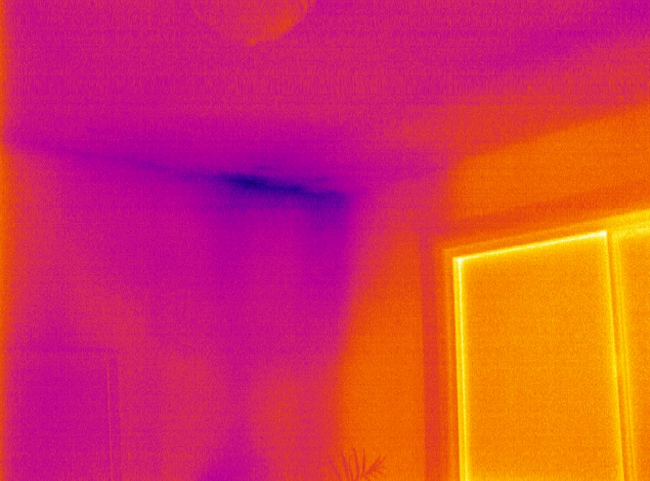Download the FREE PDF Checklist “Due Diligence Is More Than Just a Home Inspection” Here:
The Due Diligence in a contract is more than just a home inspection! You need to verify, confirm and sign off that you are OK with every facet of the property. Here are some more very important items that should be included in your due diligence as a home buyer. Please bear in mind this list not an all inclusive list, this list is only designed to assist you with common due diligence items in the Las Vegas area market. You are a “full time investigator” when you are in the due diligence phase of purchasing your home. There may be additional items outside of this list for you to take care of as well!
1) Order Your Home Inspection
Inspect LV makes it easy to order a home inspection. You may call 702-210-5333 during regular business hours (M-F 8:30AM-5PM excluding Holidays.) Or you may order online 24/7/365.
We perform our inspections in accordance with NAC 645D and have written an article that details the Nevada Administrative Code that governs Inspectors of Structures in Nevada here: Realistic Expectations for the Home Inspection.
2) Verify & Obtain Historical Water Usage with Las Vegas Valley Water District (LVVWD)
Verifying water usage is very important. While INSPECT LV makes every effort to detect an underground water leak in the course of a home inspection (i.e. checking water meter for movement,) we do not have the ability to detect underground water leaks because this is a visual service as defined by NAC 645D, an underground leak may be detected by excessive water usage.
We have had many clients surprised when their water usage was off the charts and LVVWD notified the previous owners and the previous owners did not disclose this information to the new buyers. You may call LVVWD to verify water usage and historical use by going to their website, Las Vegas Valley Water District, or by calling 702-870-4194.
3) Review Home Owner’s Association (AKA CCRS or HOA) Documentation
NRS 116.4109 definites the duties of resale properties located in an HOA. You may find the law here: https://www.leg.state.nv.us/nrs/nrs-116.html#NRS116Sec4109
After the seller sends a written request to the HOA, the HOA has 10 days to deliver the documents. The prospective purchaser has 5 days to review the documents and approve the documents. If a prospective purchaser disapproves the documents, they have the right to rescind the contract.
4) Verify School Zoning
If schools are important to you, utilize CCSD’s online zoning tools to verify school zoning. Do not rely solely on the MLS sheet provided to you. Click here to view CCSD zoning information and maps.
5) Verify Value with an Appraisal
You will want to verify the value of the home through several means:
a) an independent CMA that can be done by your real estate agent
b) a Nevada licensed appraiser
This is even if you are paying with cash. Try not to rely on online valuation sites as they may be unreliable sources. A trained human brain and eyeballs is your best source for valuation!
6) Check for Kitec Re-Plumb
If your home you are buying was built in between 1996 through 2006, Kitec may be an issue. Our inspectors do their best to look for signs of defective Kitec plumbing. If we find signs, or even if you are just curious, you may check to see if the home had a Kitec Re-Plumb as part of the class action lawsuit: Kitec Fitting Litigation Property Search
With defective Kitec plumbing fittings, it is not a matter of “if” there will be failure, it is “when”.
7) Review Title Report
You will receive a Title report from the Title agency that you selected on your contract. Review the Title report for any inconsistencies, liens, encumbrances or red flags. Ask your Title Officer if you have any questions.
Title and Escrow Officers are often the same people in the Las Vegas market. Make sure you return the information sheet promptly to your Escrow Officer when you receive it.
8) Verify Building Permits
In our article “Handyman vs Contractor“, we define what each separate entity is and what they do. Many flippers do not use licensed contractors so you will really want to verify permits issued if extensive work was done to the home you are purchasing!
Here are your resources for verifying permits:
9) Review Seller’s Real Property Disclosure (SRPD) & Any Other Disclosures
Sellers are required, by law, to disclose property defects. This includes, but is not limited to “non traditional” sellers: investors, flippers, bank owned entities, etc. There are very few exclusions to this law. The law may be found here.
10) Set Yourself Up on Crime Map Alerts
Crime Mapping – is an excellent tool. You can plug the address of the home you are purchasing into the website and set yourself up for alerts to be sent directly to your email.
11) Verify Zoning
Verify Zoning with your local zoning office. There is always a lot of new construction in the Las Vegas valley and you will want to make sure that all land zoned around you is acceptable to your needs.
12) Order a C.L.U.E. Report
A C.L.U.E. report is also known as “Comprehensive Loss Underwriting Exchange”. You may obtain this report from your home insurance providers. Some insurers will provide it for free and some will charge a nominal fee.
You do not want to go through all of this due diligence process to find out in the end that the home you are purchasing is uninsurable due to a large claim in the past.
13) Research & Order Your Home Warranty
We have written an article about doing your due diligence with Home Warranty companies – 5 Things You Should Know About a Home Warranty or Home Protections Plan.
14) Review and Turn Around Documentation to Your Lender Promptly
If you are working with a Lender, make sure you turn around paperwork quickly to avoid last minute closing delays. Also, Do not make any large credit purchases because this could throw off your ratios.
15) Obtain Historical Electrical Usage & Pick Out a Pricing Plan from Nevada Energy
Call Nevada Energy to check historical Electrical usage specific to the house you are purchasing. You may call them 24/7 at 702-402-5555.
You may review different pricing schedules for Electricity on NV Energy’s Pricing Plans page.
16) Obtain Historical Natural Gas Usage from Southwest Gas
You may check historical gas usage on the house you are purchasing by calling Southwest Gas at 877-860-6020.
16) Review Nevada Sex Offender Registry
The Nevada Sex Offender Registry is located online: http://www.nvsexoffenders.gov/ Keep in mind that the Las Vegas area is very transient and people move around often.
17) Review the Nevada Residential Disclosure Guide (RDG)
The Nevada Residential Disclosure Guide should have been delivered to you through your real estate agent and can be found here: http://red.nv.gov/Content/Publications/RDG/
Go over this RDG with a fine toothed comb and make sure you leave no stone unturned.
18) Verify Watering Schedule with Southern Nevada Water Authority (SNWA)
You may verify your watering schedule with SNWA online: https://www.snwa.com/
Be sure to check your automatic sprinklers at the house during the final walk through and make sure you adjust to match the water scheduling requirements by season.
19) Order Uncommon Inspections That are Specific to the House & That Are Important to You
a) Termite: Termites are uncommon in the Las Vegas Valley, however VA loans still require termite inspections. We recommend Crispy Critters for your Termite inspections.
b) Lead Based Paint: Lead based paint is hazardous to young children who ingest paint chips. Lead based paint was outlawed in 1977 and it is extremely difficult to test for lead based paint as it is generally under several layers of paint. You can almost guarantee that if the home was built prior to 1977 that it does have lead based paint. You can buy lead based paint test kits at Home Depot (like these for less than $15) or any hardware store.
c) Septic: If your home has a septic system, we recommend Chief Septic for septic inspections.
d) Well or Public Water Quality: Nevada Division of Environmental Protection is a resource to get well water quality testing done: https://ndep.nv.gov/water/lab-certification/drinking-water-testing.
You may also check the SNWA website for additional guidance: https://www.snwa.com/water-quality/treatment-testing/index.html
e) Mold: If moisture or suspicious biological growth was found during your home inspection you may want to find a qualified and experienced Mold inspector
f) Pest: Scorpions, Black Widows, Pigeons and Roof Rats are just a few of the common pests in the Las Vegas Valley. You may want to hire a pest inspector that is licensed by the State of Nevada Department of Agriculture. http://agri.nv.gov/Pest-Control/
20) Verify Repairs Were Done Correctly
If you have requested the seller to do repairs prior to close, make sure you verify that the repairs done quickly. Also obtain receipts for those repairs, Licensed Nevada Contractors must provide a statutory warranty for work done.
INSPECT LV includes ONE free Repair Review wrapped in the cost of their services. The reason why INSPECT LV provides a Repair Review, is because 80% of the time they are not completed correctly, subsequent Repair Reviews can be scheduled at an additional fee.
You may read Inspect LV’s Repair Review policy here:
https://inspectlv.com/reinspection-guidelines/
21) Final Walk Through & Release
A Final Walk Through & Release is vital at the conclusion of your escrow period. Mechanical, electrical and plumbing systems will fail from time to time during an escrow. Our insurance policy prevents us from providing the Walk Through for you. We highly encourage all of our clients to do their own Walk Through Inspection and test all systems to make sure they are running correctly. Your agent should have a checklist form located in Transaction Desk for you to complete this Walk Through in a thorough manner!
Finally…
Congratulations if you made it to the finish line and close on your property! We have an additional list of 4 more items you should do when you make it to the closing date:
https://inspectlv.com/4-items-a-buyer-should-do-when-they-close-on-their-home/
This checklist may be thorough however, is not all encompassing. You become an “investigator” when you purchase a home. Please seek additional guidance from your real estate agent, lender, home inspector, title & escrow officer, attorney, appraiser, etc to fulfill all the duties you need to do when purchasing your next home. Again, this checklist is not “all inclusive”. We are pleased to be a resource to the resource.




